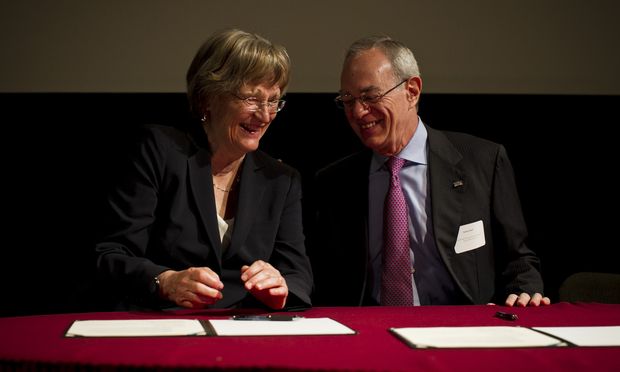
Drew Gilpin Faust, the president of Harvard and L. Rafael Reif, the president of MIT. (Dominick Reuter.)
Three years ago, Harvard University and MIT embarked on a unique experiment when they launched a nonprofit called edX. The start-up promised a free online education, with university-level classes for anyone living anywhere across the globe.
The massive open online courses (MOOCs) offered by edX held the promise of potentially revolutionizing higher education and helping with the problem of skyrocketing college costs.
The Takeaway talks with Drew Gilpin Faust, the president of Harvard, and Rafael Reif, the president of MIT, about the most important lessons they have learned from their pioneering venture.
Faust admits that she and others are still trying to figure out a sustainable business model for edX.
“So far we have invested a great deal more in creating these courses than we have generated in anyway from them,” she says.
But the popular open source platform has provided valuable insights about how students learn, according to Faust. Far from replacing brick-and-mortar colleges, edX has improved teaching methods and instruction for students enrolled in traditional residential programs, she says.
“One of the dimensions of having this many people take courses is that you have a real database—a research base to find out what are the circumstances which enable learning best [and] what makes students succeed,” Faust explains.
Related: While Hype Has Fizzled, Colleges Consider Giving Credit for Open Online Courses.
For Reif, a successful online learning experience is all about triggering curiosity through game playing.
“When you’re curious, then you really want to seek answers and you really want to learn,” he says. “The idea is how to use this new technology for what it can do best, as opposed to simply copying the classroom environment into this technology.”
This story appears courtesy of The Takeaway.










